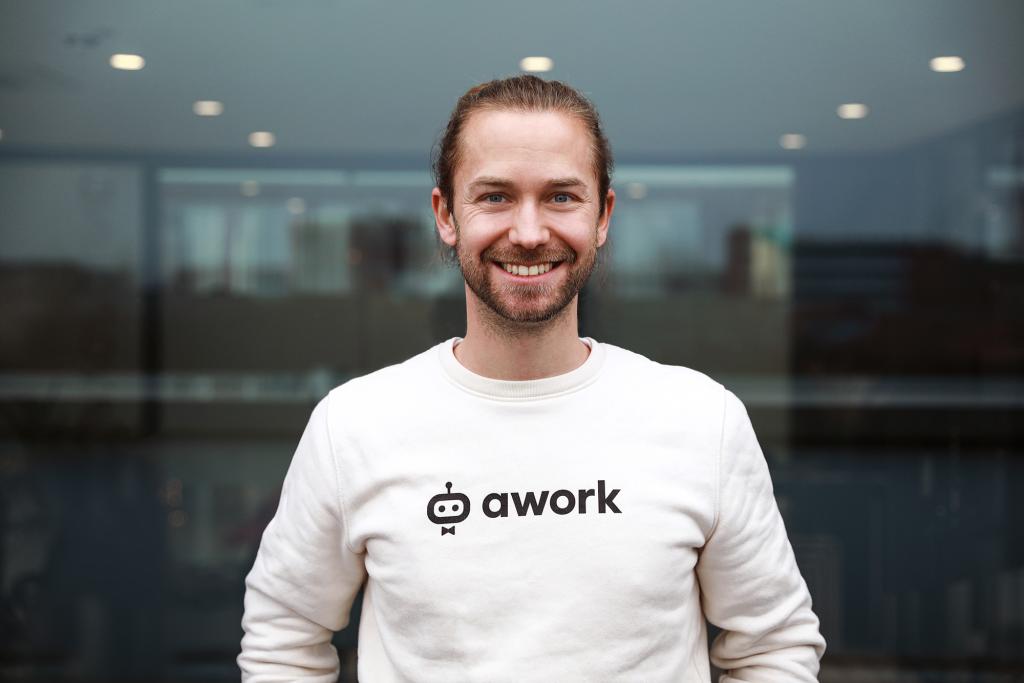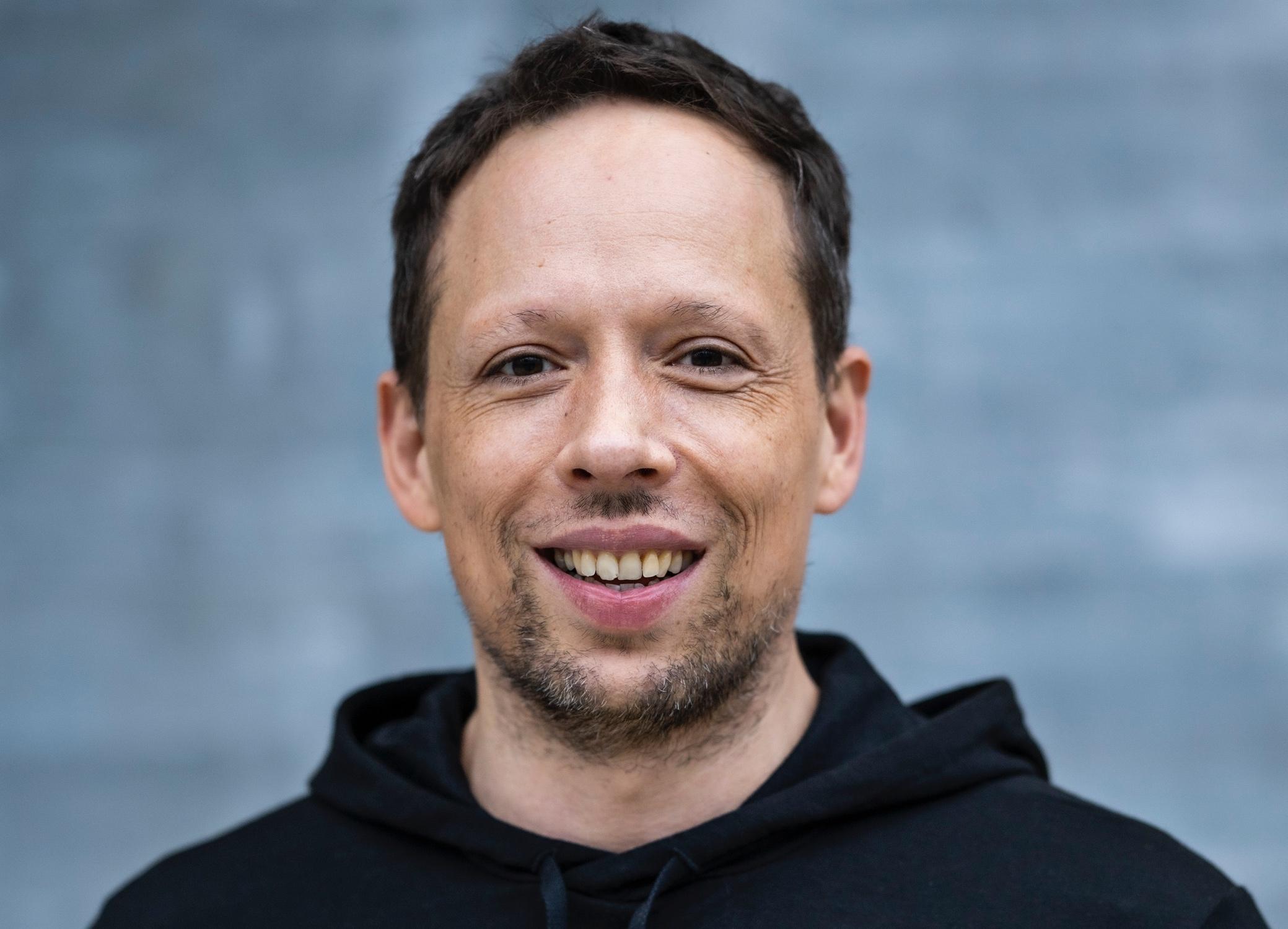Here's what bosses should look for in Workation

Lucas Bauche spent six weeks in Bali and worked from there. In this interview, he gives tips for workation, talks about the local culture and how sustainable such a trip is.
Lucas Bauche still has a tan on his face. It's hard to say whether it's from all the sunshine in Germany or from his stay in Bali until mid-June. One thing is certain: he came back after all. Now he is sitting in a telephone box at his start-up Awork, with a podcast microphone next to him and his long hair tied back. He certainly looks well rested.
Mr. Bauche, you spent six weeks in Bali. What is your most important tip?
Everyone who is planning a workation should be clear about what they actually want on location. I once did a workation in London, where I looked after a friend's apartment. Watering flowers in exchange for a change of scenery. I had lots of books with me and did a lot of work for myself, which was very focused. Back then, I kept to myself a lot and hardly got to know anyone. It was completely different in Bali. I deliberately got myself an apartment in co-living and also booked a space in co-working in advance because I wanted to get to know the different people there.
What consultation did you need with the team?
It's certainly important that you can't just say overnight: So, guys, I'm off now. In my case, the time difference was six hours, which had to be coordinated. I usually worked until 2 p.m. without any interruptions from outside and scheduled team meetings in the afternoon so that I had as many free evenings as possible. So I was only available to my German colleagues until midday or in the afternoon. That means you have to know and like asynchronous working. This includes recording videos, writing handovers and so on. But I've also seen US-Americans who had twelve-hour shifts and only ever worked at night. They were then on their own during the normal working day. You have to clarify this with the team beforehand.
The plan wouldn't have worked without the Internet. How did you sort that out?
I deliberately looked for a co-working space in Bali where I was sure that there would be an internet connection, that there would be a community, that I would always have peace and quiet and that the lighting and sound would be good. Otherwise it would have been annoying for the whole team. That was certainly my responsibility.
How big is the local digital nomad community?
The community is very large in the place I was in. There are some people like me who are there for four or six weeks and just need a change of scenery - and then there are a lot of self-employed people, freelancers and entrepreneurs who have been living as digital nomads for six months or longer.
How strange was it to be a rich European co-working in an otherwise poor country?
I got to know a lot of people from Singapore, the UK, the USA and Australia through co-working, and I had drinks with them in the evenings. That was very inspiring. On the other hand, you are of course aware of the local poverty. But where I lived, co-working tourism is very similar to the rest of tourism, it makes life better for people. The co-working space is also non-profit, is fully committed to sustainability and donates money to show the locals how to start their own business with little effort.
But flying to Bali to work is not very sustainable. Is that not a problem for you as a company?
As a company, it is important to us that we don't make business trips for an hour's meeting and then get on a plane. However, Workation is a private decision for our employees and we give them the freedom to work from any location. They therefore have to decide for themselves whether they want to fly or not. Personally, I think it's better to stay in one place for six weeks for a workation instead of regularly flying to appointments and customer projects for work.
It could have been France instead of Bali.
I like Asia, the spicy food, the temperatures and the culture. That's why I wanted to go there to get a little distance from everyday life. That wouldn't have worked so well in France.
Did you have any time at all for culture?
Much more than if I had flown there on vacation. The fact that you normally have weekends off and can also move around the area during the week means you can let yourself drift much better. On vacation, everything is always very tightly scheduled because you don't want to miss anything. It's completely different at Workation.
Thank you very much for the interview.
About the person: Lucas Bauche is co-founder of Awork. According to his own information, the work management tool is used by over 2000 teams.

Newsletter
Startups, stories and stats from the German startup ecosystem straight to your inbox. Subscribe with 2 clicks. Noice.
LinkedIn ConnectFYI: English edition available
Hello my friend, have you been stranded on the German edition of Startbase? At least your browser tells us, that you do not speak German - so maybe you would like to switch to the English edition instead?
FYI: Deutsche Edition verfügbar
Hallo mein Freund, du befindest dich auf der Englischen Edition der Startbase und laut deinem Browser sprichst du eigentlich auch Deutsch. Magst du die Sprache wechseln?













